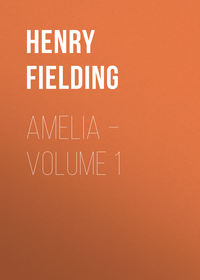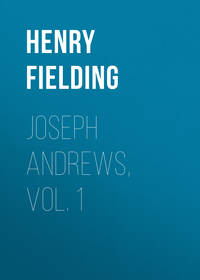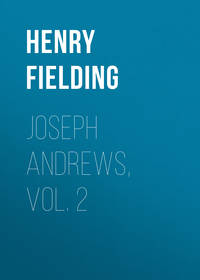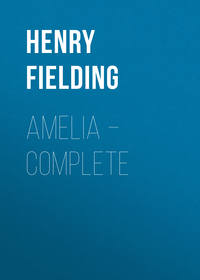 полная версия
полная версияThe Works of Henry Fielding, vol. 12
Q. Ign. The Modish Couple is its name; myself Stood gossip to it, and I will support This play against the town.
I Att. Madam, the queen Of Common Sense advances with her powers.
Q. Ign. Draw up my men, I'll meet her as I ought; This day shall end the long dispute between us.
Enter Queen COMMON SENSE with a Drummer.
Fust. Hey-day! where's Common Sense's army?
Promp. Sir, I have sent all over the town, and could not get one soldier for her, except that poor drummer, who was lately turned out of an Irish regiment.
Drum. Upon my shoul but I have been a drummer these twenty years, master, and have seen no wars yet; and I was willing to learn a little of my trade before I died.
Fust. Hush, sirrah! don't you be witty; that is not in your part.
Drum. I don't know what is in my part, sir; but T desire to have something in it; for I have been tired of doing nothing a great while.
Fust. Silence!
Q. C. S. What is the reason, madam, that you bring These hostile arms into my peaceful realm?
_Q. Ign. To ease your subjects from that dire oppression They groan beneath, which longer to support Unable, they invited my redress.
Q. C. S. And can my subjects then complain of wrong? Base and ungrateful! what is their complaint?
Q. Ign. They say you do impose a tax of thought Upon their minds, which they're too weak to bear.
Q. C. S. Wouldst thou from thinking then absolve mankind?
Q. Ign. I would, for thinking only makes men wretched;And happiness is still the lot of fools.Why should a wise man wish to think, when thoughtStill hurts his pride; in spite of all his art,Malicious fortune, by a lucky trainOf accidents, shall still defeat his schemes,And set the greatest blunderer above him.Q. C. S. Urgest thou that against me, which thyselfHas been the wicked cause of? Which thy power,Thy artifice, thy favourites have done?Could Common Sense bear universal sway,No fool could ever possibly be great.Q. Ign. What is this folly, which you try to paintIn colours so detestable and black?Is't not the general gift of fate to men?And though some few may boast superior sense,Are they not call'd odd fellows by the rest?In any science, if this sense peep forth,Shew men the truth, and strive to turn their stepsFrom ways wherein their gross forefathers err'd,Is not the general cry against them straight?Sneer. This Ignorance, Mr Fustian, seems to know a great deal.
Fust. Yes, sir, she knows what she has seen so often; but you find she mistakes the cause, and Common Sense can never beat it into her.
Q. Ign. Sense is the parent still of fear; the fox,Wise beast, who knows the treachery of men,Flies their society, and skulks in woods,While the poor goose, in happiness and ease,Fearless grows fat within its narrow coop,And thinks the hand that feeds it is its friend;Then yield thee, Common Sense, nor rashly dareTry a vain combat with superior force.Q. C. S. Know, queen, I never will give up the causeOf all these followers: when at the headOf all these heroes I resign my right,May my curst name be blotted from the earth!Sneer. Methinks, Common Sense, though, ought to give it up, when she has no more to defend it.
Fust. It does indeed look a little odd at present; but I'll get her an army strong enough against its acted. Come, go on.
Q. Ign. Then thus I hurl defiance at thy head. Draw all your swords.
Q. C. S. And, gentlemen, draw yours.
Q. Ign. Fall on; have at thy heart.
[A fight
Q. C. S. And have at thine.
Fust. Oh, fie upon't, fie upon't! I never saw a worse battle in all my life upon any stage. Pray, gentlemen, come some of you over to the other side.
Sneer. These are Swiss soldiers, I perceive, Mr Fustian; they care not which side they fight of.
Fust. Now, begin again, if you please, and fight away; pray fight as if you were in earnest, gentlemen. [They fight.] Oons, Mr Prompter! I fancy you hired these soldiers out of the trained bands – they are afraid to fight even in jest. [They fight again.] There, there – pretty well. I think, Mr Sneerwell, we have made a shift to make out a good sort of a battle at last.
Sneer. Indeed I cannot say I ever saw a better.
Fust. You don't seem, Mr Sneerwell, to relish this battle greatly.
Sneer. I cannot profess myself the greatest admirer of this part of tragedy; and I own my imagination can better conceive the idea of a battle from a skilful relation of it than from such a representation; for my mind is not able to enlarge the stage into a vast plain, nor multiply half a score into several thousands.
Fust. Oh; your humble servant! but if we write to please you and half a dozen others, who will pay the charges of the house? Sir, if the audience will be contented with a battle or two, instead of all the raree-fine shows exhibited to them in what they call entertainments —
Sneer. Pray, Mr Fustian, how came they to give the name of entertainments to their pantomimical farces?
Fust. Faith, sir, out of their peculiar modesty; intimating that after the audience had been tired with the dull works of Shakspeare, Jonson, Vanbrugh, and others, they are to be entertained with one of these pantomimes, of which the master of the playhouse, two or three painters, and half a score dancing-masters are the compilers. What these entertainments are, I need not inform you, who have seen 'em; but I have often wondered how it was possible for any creature of human understanding, after having been diverted for three hours with the production of a great genius, to sit for three more and see a set of people running about the stage after one another, without speaking one syllable, and playing several juggling tricks, which are done at Fawks's after a much better manner; and for this, sir, the town does not only pay additional prices, but loses several fine parts of its best authors, which are cut out to make room for the said farces.
Sneer. 'Tis very true; and I have heard a hundred say the same thing, who never failed being present at them.
Fust. And while that happens, they will force any entertainment upon the town they please, in spite of its teeth. [Ghost of COMMON SENSE rises.] Oons, and the devil, madam! what's the meaning of this? You have left out a scene. Was ever such an absurdity as for your ghost to appear before you are killed.
Q. C. S. I ask pardon, sir; in the hurry of the battle I forgot to come and kill myself.
Fust. Well, let me wipe the flour off your face then. And now, if you please, rehearse the scene; take care you don't make this mistake any more though, for it would inevitably damn the play if you should. Go to the corner of the scene, and come in as if you had lost the battle.
Q. C. S. Behold the ghost of Common Sense appears.
Fust. 'Sdeath, madam, I tell you you are no ghost – you are not killed.
Q. C. S. Deserted and forlorn, where shall I fly. The battle's lost, and so are all my friends.
Enter a Poet.
Poet. Madam, not so; still you have one friend left.
Q. C. S. Why, what art thou?
Poet. Madam, I am a poet.
Q. C. S. Whoe'er thou art, if thou'rt a friend to misery, Know Common Sense disclaims thee.
Poet. I have been damn'd Because I was your foe, and yet I still Courted your friendship with my utmost art.
Q. C. S. Fool! thou wert damn'd because thou didst pretendThyself my friend; for hadst thou boldly dared,Like Hurlothrumbo, to deny me quite,Or, like an opera or pantomime,Profess'd the cause of Ignorance in publick,Thou might'st have met with thy desired success;But men can't bear even a pretence to me.Poet. Then take a ticket for my benefit night.
Q. C. S. I will do more – for Common Sense will stay Quite from your house, so may you not be damn'd.
Poet. Ha! say'st thou? By my soul, a better playNe'er came upon a stage; but, since you dareContemn me thus, I'll dedicate my playTo Ignorance, and call her Common Sense:Yes, I will dress her in your pomp, and swearThat Ignorance knows more than all the world. [Exit.Enter FIREBRAND.
Fireb. Thanks to the Sun for this desired encounter.
Q. C. S. Oh, priest! all's lost; our forces are o'erthrown – Some gasping lie, but most are run away.
Fireb. I knew it all before, and told you too The Sun has long been out of humour with you.
Q. C. S. Dost thou, then, lay upon the Sun the faults Of all those cowards who forsook my cause?
Fireb. Those cowards all were most religious men: And I beseech thee, Sun, to shine upon them.
Q. C. S. Oh, impudence! and darest thou to my face? —
Fireb. Yes, I dare more; the Sun presents you this, [Stabs her. Which I, his faithful messenger, deliver.
Q. C. S. Oh, traytor! thou hast murder'd Common Sense.Farewel, vain world! to Ignorance I give thee,Her leaden sceptre shall henceforward rule.Now, priest, indulge thy wild ambitious thoughts;Men shall embrace thy schemes, till thou hast drawnAll worship from the Sun upon thyself:Henceforth all things shall topsy-turvy turn;Physick shall kill, and Law enslave the world;Cits shall turn beaus, and taste Italian songs,While courtiers are stock-jobbing in the city.Places requiring learning and great partsHenceforth shall all be hustled in a hat,And drawn by men deficient in them both.Statesmen – but oh! cold death will let me sayNo more – and you must guess et caetera. [Dies.Fireb. She's gone! but ha! it may beseem me illT' appear her murderer. I'll therefore layThis dagger by her side; and that will beSufficient evidence, with a little money,To make the coroner's inquest find self-murder.I'll preach her funeral sermon, and deploreHer loss with tears, praise her with all my art.Good Ignorance will still believe it all. [Exit.Enter Queen IGNORANCE, &c.
Q. Ign. Beat a retreat; the day is now our own;The powers of Common Sense are all destroy'd;Those that remain are fled away with her.I wish, Mr Fustian, this speech be common sense.Sneer. How the devil should it, when she's dead?
Fust. One would think so, when a cavil is made against the best thing in the whole play; and I would willingly part with anything else but those two lines.
Harl. Behold! where welt'ring in her blood she lies. I wish, sir, you would cut out that line, or alter it, if you please.
Fust. That's another line that I won't part with; I would consent to cut out anything but the chief beauties of my play.
Harl. Behold the bloody dagger by her side, With which she did the deed.
Q. Ign. 'Twas nobly done!I envy her her exit, and will payAll honours to her dust. Bear hence her body,And let her lie in state in Goodman's fields.Enter Messenger.
Mess. Madam, I come an envoy from Crane-court.The great society that there assembleCongratulate your victory, and requestThat firm alliance henceforth may subsistBetween your majesty's societyOf Grub-street and themselves: they rather begThat they may be united both in one.They also hope your majesty's acceptanceOf certain curiosities, which inThat hamper are contain'd, wherein you'll findA horse's tail, which has a hundred hairsMore than are usual in it; and a toothOf elephant full half an inch too long;With turnpike-ticket like an ancient coin.Q. Ign. We gratefully accept their bounteous gifts,And order they be kept with proper care,Till we do build a place most fit to holdThese precious toys: tell your societyWe ever did esteem them of great worth,And our firm friends: and tell 'em 'tis our pleasureThey do prepare to dance a jig before us.[Exit Messenger
My lords of Law and Physick, you shall findI will not be ungrateful for your service:To you, good Harlequin, and your allies,And you, Squeekaronelly, I will beA most propitious queen – But ha![Music under the stage.
What hideous music or what yell is this?Sure 'tis the ghost of some poor opera tune.Sneer. The ghost of a tune, Mr Fustian!
Fust. Ay, sir, did you never hear one before? I had once a mind to have brought the apparition of Musick in person upon the stage, in the shape of an English opera. Come, Mr Ghost of the Tune, if you please to appear in the sound of soft musick, and let the ghost of Common Sense rise to it.
[Ghost of COMMON SENSE rises to soft musick.
Ghost. Behold the ghost of Common Sense appears. Caitiffs, avaunt! or I will sweep you off, And clean the land from such infernal vermin.
Q. Ign. A ghost! a ghost! a ghost! haste, scamper off, My friends; we've kill'd the body, and I know The ghost will have no mercy upon us.
Omnes. A ghost! a ghost! a ghost! [Run off.
Ghost. The coast is clear, and to her native realmsPale Ignorance with all her host is fled,Whence she will never dare invade us more.Here, though a ghost, I will my power maintain,And all the friends of Ignorance shall findMy ghost, at least, they cannot banish hence;And all henceforth, who murder Common Sense,Learn from these scenes that, though success you boast.You shall at last be haunted with her ghost.Sneer. I am glad you make Common Sense get the better at last; I was under terrible apprehensions for your moral.
Fust. Faith, sir, this is almost the only play where she has got the better lately. But now for my epilogue: if you please to begin, madam.
EPILOGUEGHOSTThe play once done, the epilogue, by rule,Should come and turn it all to ridicule;Should tell the ladies that the tragic bards,Who prate of Virtue and her vast rewards,Are all in jest, and only fools should heed 'em;For all wise women flock to mother Needham.This is the method epilogues pursue,But we to-night in everything are new.Our author then, in jest throughout the play,Now begs a serious word or two to say.Banish all childish entertainments hence;Let all that boast your favour have pretence,If not to sparkling wit, at least to sense.With soft Italian notes indulge your ear;But let those singers, who are bought so dear,Learn to be civil for their cheer at least,Nor use like beggars those who give the feast.And though while musick for herself may carve,Poor Poetry, her sister-art, must starve;Starve her at least with shew of approbation,Nor slight her, while you search the whole creationFor all the tumbling-skum of every nation.Can the whole world in science match our soil?Have they a LOCKE, a NEWTON, or a BOYLE?Or dare the greatest genius of their stageWith SHAKSPEARE or immortal BEN engage?Content with nature's bounty, do not craveThe little which to other lands she gave;Nor like the cock a barley corn preferTo all the jewels which you owe to her.* * * * *AN ESSAY ON CONVERSATION
Man is generally represented as an animal formed for, and delighted in, society; in this state alone, it is said, his various talents can be exerted, his numberless necessities relieved, the dangers he is exposed to can be avoided, and many of the pleasures he eagerly affects enjoyed. If these assertions be, as I think they are, undoubtedly and obviously certain, those few who have denied man to be a social animal have left us these two solutions of their conduct; either that there are men as bold in denial as can be found in assertion – and as Cicero says there is no absurdity which some philosopher or other hath not asserted, so we may say there is no truth so glaring that some have not denied it; – or else that these rejectors of society borrow all their information from their own savage dispositions, and are, indeed, themselves, the only exceptions to the above general rule.
But to leave such persons to those who have thought them more worthy of an answer; there are others who are so seemingly fond of this social state, that they are understood absolutely to confine it to their own species; and entirely excluding the tamer and gentler, the herding and flocking parts of the creation, from all benefits of it, to set up this as one grand general distinction between the human and the brute species.
Shall we conclude this denial of all society to the nature of brutes, which seems to be in defiance of every day's observation, to be as bold as the denial of it to the nature of men? or, may we not more justly derive the error from an improper understanding of this word society in too confined and special a sense? in a word, do those who utterly deny it to the brutal nature mean any other by society than conversation?
Now, if we comprehend them in this sense, as I think we very reasonably may, the distinction appears to me to be truly just; for though other animals are not without all use of society, yet this noble branch of it seems, of all the inhabitants of this globe, confined to man only; the narrow power of communicating some few ideas of lust, or fear, or anger, which may be observable in brutes, falling infinitely short of what is commonly meant by conversation, as may be deduced from the origination of the word itself, the only accurate guide to knowledge. The primitive and literal sense of this word is, I apprehend, to turn round together; and in its more copious usage we intend by it that reciprocal interchange of ideas by which truth is examined, things are, in a manner, turned round and sifted, and all our knowledge communicated to each other.
In this respect man stands, I conceive, distinguished from, and superior to, all other earthly creatures; it is this privilege which, while he is inferior in strength to some, in swiftness to others; without horns or claws or tusks to attack them, or even to defend himself against them, hath made him master of them all. Indeed, in other views, however vain men may be of their abilities, they are greatly inferior to their animal neighbours.
With what envy must a swine, or a much less voracious animal, be surveyed by a glutton; and how contemptible must the talents of other sensualists appear, when opposed, perhaps, to some of the lowest and meanest of brutes! but in conversation man stands alone, at least in this part of the creation; he leaves all others behind him at his first start, and the greater progress he makes the greater distance is between them.
Conversation is of three sorts. Men are said to converse with God, with themselves, and with one another. The two first of these have been so liberally and excellently spoken to by others, that I shall at present pass them by and confine myself in this essay to the third only; since it seems to me amazing that this grand business of our lives, the foundation of everything either useful or pleasant, should have been so slightly treated of, that, while there is scarce a profession or handicraft in life, however mean and contemptible, which is not abundantly furnished with proper rules to the attaining its perfection, men should be left almost totally in the dark, and without the least light to direct, or any guide to conduct them, in the proper exerting of those talents which are the noblest privilege of human nature and productive of all rational happiness; and the rather as this power is by no means self-instructed, and in the possession of the artless and ignorant is of so mean use that it raises them very little above those animals who are void of it.
As conversation is a branch of society, it follows that it can be proper to none who is not in his nature social. Now, society is agreeable to no creatures who are not inoffensive to each other; and we therefore observe in animals who are entirely guided by nature that it is cultivated by such only, while those of more noxious disposition addict themselves to solitude, and, unless when prompted by lust, or that necessary instinct implanted in them by nature for the nurture of their young, shun as much as possible the society of their own species. If therefore there should be found some human individuals of so savage a habit, it would seem they were not adapted to society, and, consequently, not to conversation; nor would any inconvenience ensue the admittance of such exceptions, since it would by no means impeach the general rule of man's being a social animal; especially when it appears (as is sufficiently and admirably proved by my friend the author of An Enquiry into Happiness) that these men live in a constant opposition to their own nature, and are no less monsters than the most wanton abortions or extravagant births.
Again; if society requires that its members should be inoffensive, so the more useful and beneficial they are to each other the more suitable are they to the social nature, and more perfectly adapted to its institution; for all creatures seek their own happiness, and society is therefore natural to any, because it is naturally productive of this happiness. To render therefore any animal social is to render it inoffensive; an instance of which is to be seen in those the ferocity of whose nature can be tamed by man. And here the reader may observe a double distinction of man from the more savage animals by society, and from the social by conversation.
But if men were merely inoffensive to each other, it seems as if society and conversation would be merely indifferent; and that, in order to make it desirable by a sensible being, it is necessary we should go farther and propose some positive good to ourselves from it; and this presupposes, not only negatively, our not receiving any hurt, but positively, our receiving some good, some pleasure or advantage, from each other in it, something which we could not find in an unsocial and solitary state; otherwise we might cry out with the right honourable poet – [Footnote: The Duke of Buckingham.]
Give us our wildness and our woods, Our huts and caves again.
The art of pleasing or doing good to one another is therefore the art of conversation. It is this habit which gives it all its value. And as man's being a social animal (the truth of which is incontestably proved by that excellent author of An Enquiry, &c., I have above cited) presupposes a natural desire or tendency this way, it will follow that we can fail in attaining this truly desirable end from ignorance only in the means; and how general this ignorance is may be, with some probability, inferred from our want of even a word to express this art by; that which comes the nearest to it, and by which, perhaps, we would sometimes intend it, being so horribly and barbarously corrupted, that it contains at present scarce a simple ingredient of what it seems originally to have been designed to express.
The word I mean is good breeding; a word, I apprehend, not at first confined to externals, much less to any particular dress or attitude of the body; nor were the qualifications expressed by it to be furnished by a milliner, a taylor, or a perriwig-maker; no, nor even by a dancing-master himself. According to the idea I myself conceive from this word, I should not have scrupled to call Socrates a well-bred man, though, I believe, he was very little instructed by any of the persons I have above enumerated. In short, by good-breeding (notwithstanding the corrupt use of the word in a very different sense) I mean the art of pleasing, or contributing as much as possible to the ease and happiness of those with whom you converse. I shall contend therefore no longer on this head; for, whilst my reader clearly conceives the sense in which I use this word, it will not be very material whether I am right or wrong in its original application.
Good-breeding then, or the art of pleasing in conversation, is expressed two different ways, viz., in our actions and our words, and our conduct in both may be reduced to that concise, comprehensive rule in scripture – Do unto all men as you would they should do unto you. Indeed, concise as this rule is, and plain as it appears, what are all treatises on ethics but comments upon it? and whoever is well read in the book of nature, and hath made much observation on the actions of men, will perceive so few capable of judging or rightly pursuing their own happiness, that he will be apt to conclude that some attention is necessary (and more than is commonly used) to enable men to know truly what they would have done unto them, or, at least, what it would be their interest to have done.









